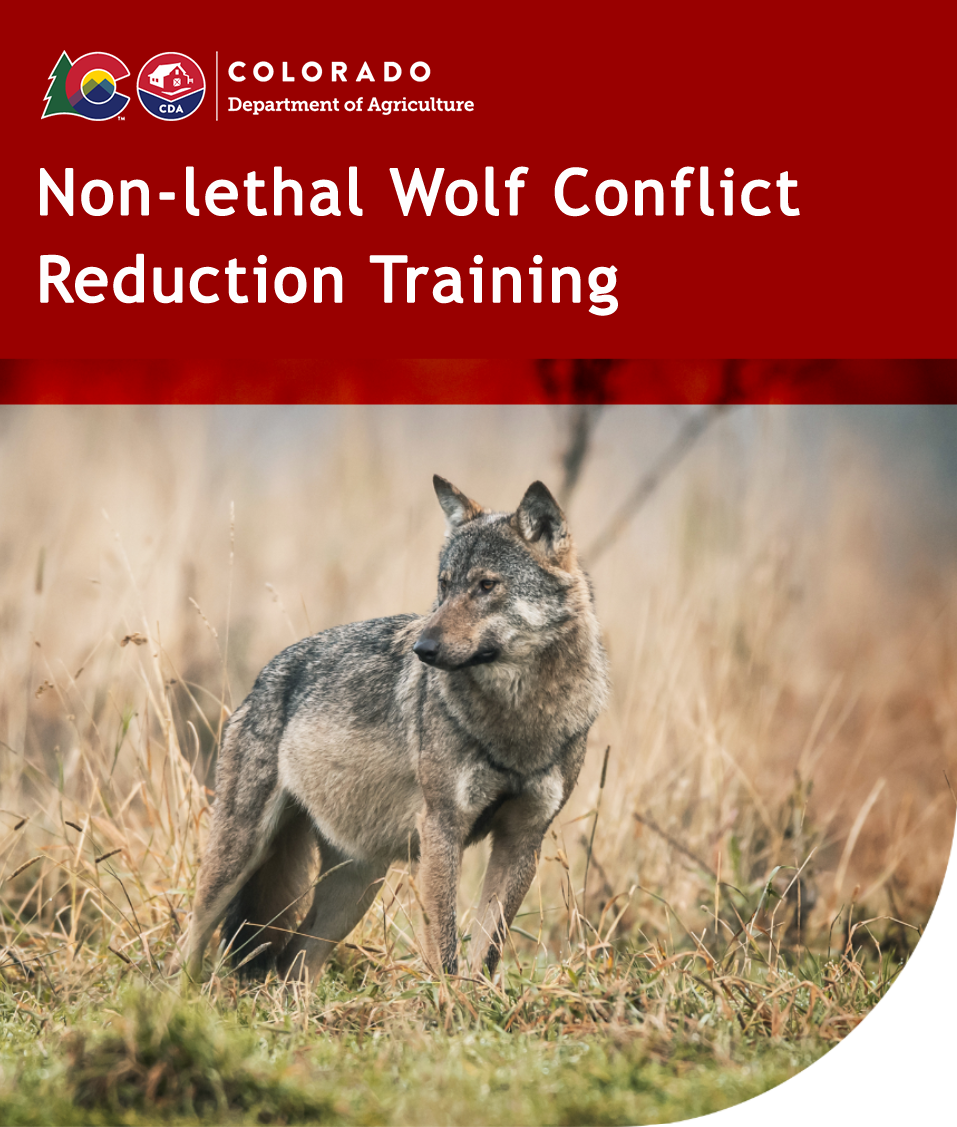Non-lethal Wolf Conflict Reduction Training - Aspen
 Join CDA, Colorado Parks and Wildlife, APHIS Wildlife Services and Colorado State University Extension at an upcoming interagency training session.
Join CDA, Colorado Parks and Wildlife, APHIS Wildlife Services and Colorado State University Extension at an upcoming interagency training session.
 Join CDA, Colorado Parks and Wildlife, APHIS Wildlife Services and Colorado State University Extension at an upcoming interagency training session.
Join CDA, Colorado Parks and Wildlife, APHIS Wildlife Services and Colorado State University Extension at an upcoming interagency training session.
 Join CDA, Colorado Parks and Wildlife, APHIS Wildlife Services and Colorado State University Extension at an upcoming interagency training session.
Join CDA, Colorado Parks and Wildlife, APHIS Wildlife Services and Colorado State University Extension at an upcoming interagency training session.
 Join CDA, Colorado Parks and Wildlife, APHIS Wildlife Services and Colorado State University Extension at an upcoming interagency training session.
Join CDA, Colorado Parks and Wildlife, APHIS Wildlife Services and Colorado State University Extension at an upcoming interagency training session.
The Colorado Department of Agriculture (CDA) has partnered with Colorado Parks and Wildlife (CPW), USDA-APHIS Wildlife Services, and Colorado State University Extension to bring trainings to Colorado livestock producers related to coexistence with wolves and the highly effective non-lethal deterrent methods available to them through the State of Colorado.
 Join CDA, Colorado Parks and Wildlife, APHIS Wildlife Services and Colorado State University Extension at an upcoming interagency training session.
Join CDA, Colorado Parks and Wildlife, APHIS Wildlife Services and Colorado State University Extension at an upcoming interagency training session.
 Join CDA, Colorado Parks and Wildlife, APHIS Wildlife Services and Colorado State University Extension at an upcoming interagency training session.
Join CDA, Colorado Parks and Wildlife, APHIS Wildlife Services and Colorado State University Extension at an upcoming interagency training session.
 Join CDA, Colorado Parks and Wildlife, APHIS Wildlife Services and Colorado State University Extension at an upcoming interagency training session.
Join CDA, Colorado Parks and Wildlife, APHIS Wildlife Services and Colorado State University Extension at an upcoming interagency training session.
 Join CDA, Colorado Parks and Wildlife, APHIS Wildlife Services and Colorado State University Extension at an upcoming interagency training session.
Join CDA, Colorado Parks and Wildlife, APHIS Wildlife Services and Colorado State University Extension at an upcoming interagency training session.